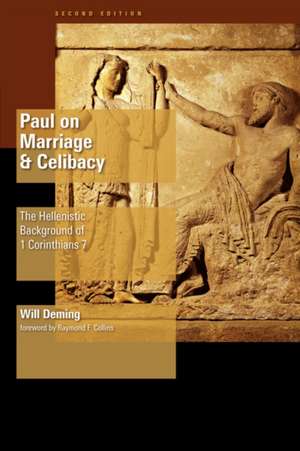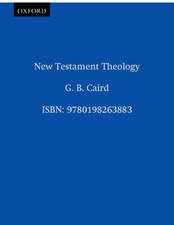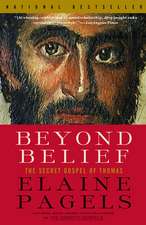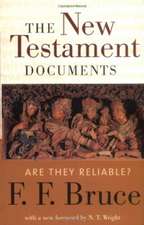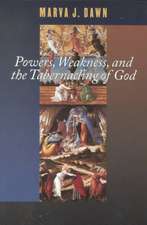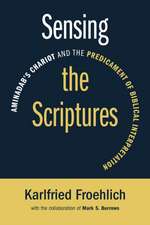Paul on Marriage and Celibacy: The Hellenistic Background of 1 Corinthians 7
Autor Will Deming Raymond F. Collinsen Limba Engleză Paperback – 31 oct 2003
Preț: 180.29 lei
Nou
34.50€ • 36.15$ • 28.52£
Carte disponibilă
Livrare economică 22 martie-05 aprilie
Specificații
ISBN-10: 0802839894
Pagini: 271
Dimensiuni: 160 x 236 x 21 mm
Greutate: 0.43 kg
Ediția:2
Editura: William B. Eerdmans Publishing Company
Locul publicării:United States
Textul de pe ultima copertă
Paul is traditionally seen as one of the founders of Christian sexual asceticism. As early as the second century C.E. church leaders looked to him as a model for their lives of abstinence. But is this a correct reading of Paul? What exactly did Paul teach on the subjects of marriage and celibacy? Will Deming here answers these questions -- often in provocative new ways.
By placing Paul's statements on marriage and celibacy against the backdrop of ancient Hellenistic society, Deming constructs a coherent picture of Paul's views. He shows that the conceptual world in which Paul lived and wrote had substantially vanished by 100 C.E., and terms like "sin," "body," "sex," and "holiness" began to acquire moral implications quite unlike those Paul knew. Paul conceived of marriage as asocial obligation that had the potential of distracting Christians fromChrist. For him, celibacy was the single life, free from such distraction, not a life of saintly denial. Sex, in turn, was not sinful but natural, and sex within marriage was both proper and necessary.
